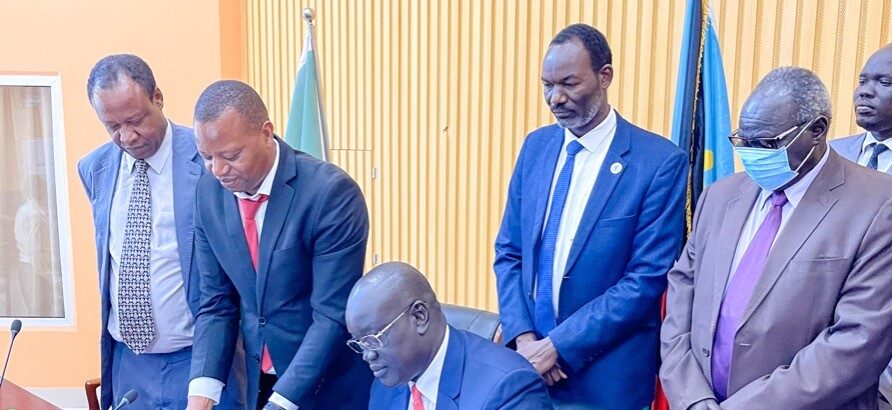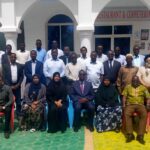June 18, 2022 (TORIT, South Sudan) The IGAD Centre for Pastoral Areas and Livestock Development held a two-day national meeting on ratification and domestication of the IGAD Transhumance Protocol in Torit.
The meeting was attended by Policy Makers from Transitional National Legislative Assembly, notably from the committee of Foreign Affairs and International Cooperation, committee of Legislation and Justice, committee of Livestock and Fisheries and Committee of Agriculture and Food Security. The meeting was also attended by high-level experts from the Ministry of Foreign Affairs, the Ministry of Livestock and Fisheries and Ministry of Justice.
This high-level national meeting is organized within a European Union funded three-year program towards a free movement regime in the IGAD region to promote orderly cross-border mobility and migration, regional economic integration and development. IGAD through its specialized unit ICPALD has conducted all-stakeholders’ consultation meetings at national and regional levels to come up with an all-inclusive Protocol on Transhumance to support development and orderly cross-border mobility of transhumance pastoralists in the region.
Following this meeting, the Minister of Foreign Affairs of South Sudan, Hon. Mayiik Ayii Deng, signed the IGAD protocols on free movement of persons and transhumance, in the company of the Minister of Livestock and Fisheries, Hon. Onyoti Adigo.
The outputs of the meeting are as follows:
- Sensitization of key legislators, policymakers and technical partners / stakeholders towards ratification and domestication process of the Transhumance Protocol.
- Discussions on development of national pastoral codes initiated at Member State level.
- A Signed and adopted Protocol on Transhumance and its implementation Roadmap by IGAD Member States.
ICPALD is organizing meetings in the Member States to confirm adoption of the Protocol on Transhumance by the IGAD Council of Ministers of Foreign Affairs through signing by the Ministers of Foreign Affairs in line with the 72nd Communique that Adopts the Protocol, to engage key legislators, policymakers and technical partners/stakeholders towards ratification and domestication of the Protocols and to initiate the process of developing national pastoral codes by key legislators, policymakers and technical partners/stakeholders.
Background
The need for the transhumance protocol in the IGAD region is premised on the understanding that migration in search of pastures and water is paramount to the very survival of pastoralist communities. Transhumance is a net contributor to the economies of the IGAD Region and not just a taker, and evidence shows that transhumance contributes 6-10% of the GDP of these economies. The Region has a significant number of pastoralists which calls for enhanced governance. Pastoral livestock supports 70% of pastoral livelihoods in the IGAD region, which is actually the only region that is self-sufficient in its needs for meat in Africa. The region exports about 12.8 million heads of sheep and goats as well as 60,000 tons of meat every year. Climate change effects, especially drought, put pastoralists in persistent problems and conflicts as they compete for water and pasture. As a result, pastoralists have been and will be moving with their animals and transhumance cannot be wished away in this region.
The IGAD Member States and the Secretariat have come up with various strategies to deal with the challenges posed by transhumance, including established ICPALD in 2012 to foster development of the livestock sector, signing of MoUs between countries on cross border animal health, mapping of transhumance routes, and integrated early warning system on climate change. The Protocol on Transhumance is a great stride towards a comprehensive response to enhance sustainable pastoral development in the IGAD region.
Development of the IGAD Transhumance Protocol and a Transhumance Certificate was a very participatory process that involved robust consultations with MS between 2017 – 2020. Though faced with challenges of COVID-19 pandemic, substantive milestones were achieved. The Protocol was finally endorsed by the IGAD Committee of Ambassadors in February 2020 in Khartoum, Republic of Sudan. The endorsement was followed by development and adoption of an Implementation Road Map.






